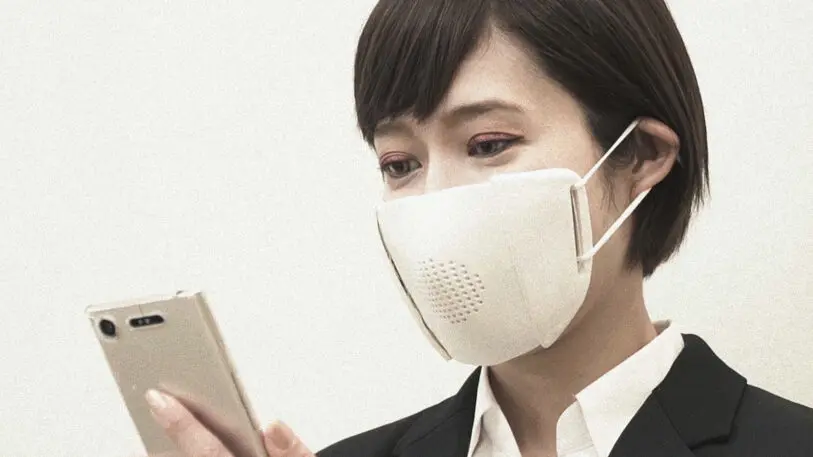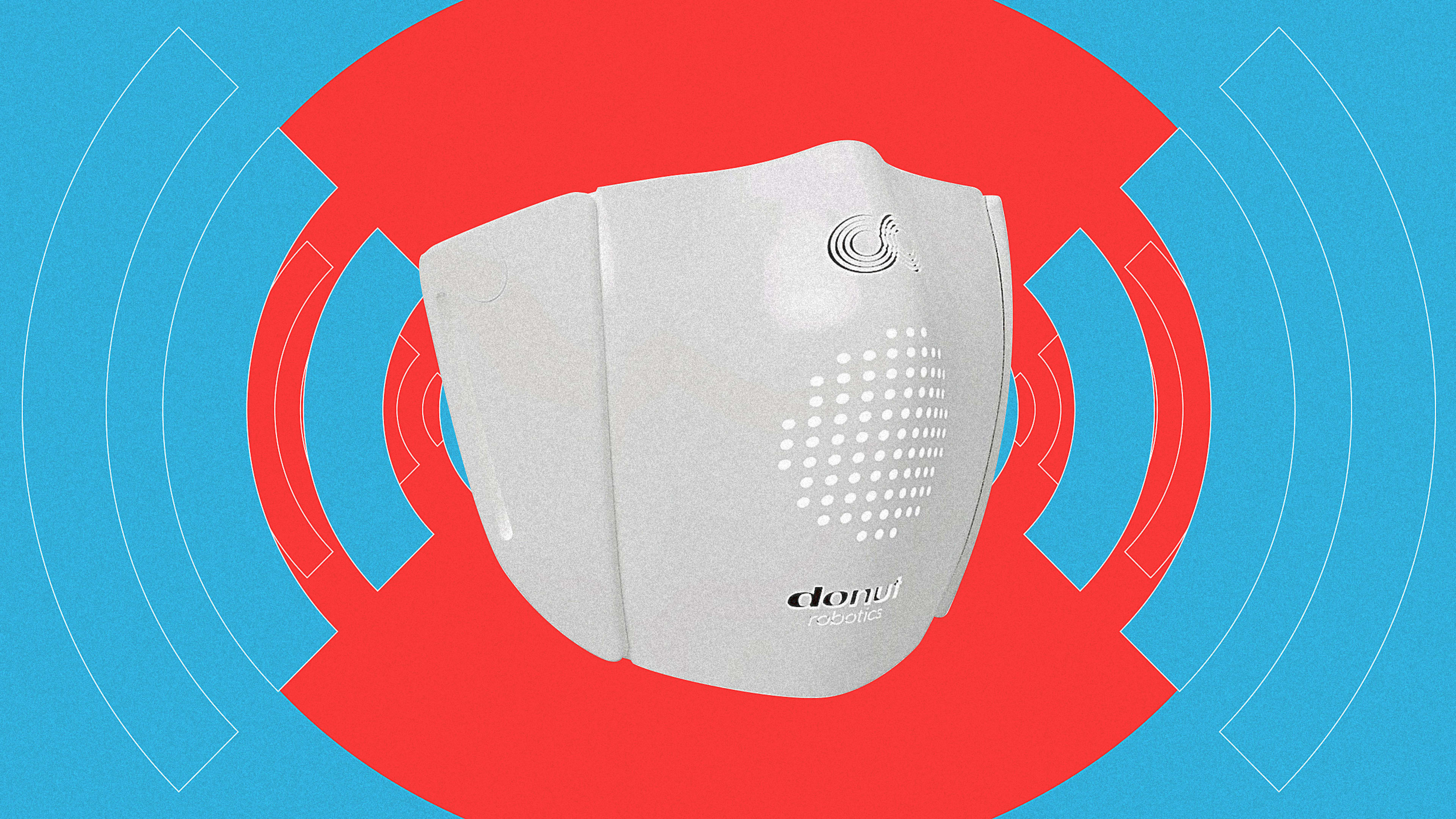As the world awaits a COVID-19 vaccine, we’re beginning to realize that herd immunity might not work. Early studies show that people infected with the disease can stop producing antibodies within just two months of recovering—after which you can be infected again. If that’s the case, we need to rethink everything from our building air to the way we travel.
Oh, and those masks we’ve been wearing? They might be around to stay. As a result, they’ll need to adapt from optional accessory to a daily reality.
Now, a Japanese technology company called Donut Labs is offering a peek as to where masks could be going next. It’s developing the C-Face smart mask, which has a lot more in common with Fitbit than any three-ply cotton mask you’ve bought off Etsy.
The C-Face is basically a plastic case that attaches on top of your soft, air-filtering mask. Its goal is something we can all relate to: to help people understand your muffled speech better. Connecting with your phone via Bluetooth, it somehow senses your face muscles to decipher your speech even when people nearby might not be able to, according to Reuters. (Presumably there’s a microphone inside, too.) An accompanying app converts your speech to text on your phone screen for others to read, or it seems that it can use the smartphone’s speaker to amplify your voice. The app also promises to take minutes in your meetings and translate what you said into one of eight languages, making it particularly useful for people who frequently travel.

To be honest, the entire smartphone-based UX of this mask could be pretty clunky to use in real life. Imagine pulling out your phone and breaking social distance to hand someone your screen just so they can understand you better. But it appears there’s still considerable demand for it to exist.
The team was actually working on building a robot when COVID-19 broke out. The company used its engineering prowess to develop the C-Face, listing it on the Japanese crowdfunding site Fundinno, raising around $260,000 in $40 mask preorders. And since Reuters ran its story last week, Donut Labs reports receiving hundreds of emails, asking for expanded support across 30 countries.
And why not? Thus far, masks have mostly been designed for the medical community: to be cheap, sterile, and disposable. But as masks may be here to stay for the foreseeable future, everyday people are learning their pain points.
In turn, we’re seeing masks and mask accessories that allow you to exercise, promote your favorite sports team, prevent your glasses from fogging up, read lips, and even take sips of cocktails without pulling the PPE all the way down from your face. Each of these designs acknowledges that the mask isn’t necessarily a one-size-fits-all accessory that has finished its evolution as a product. No, as masks have become consumer goods, we’re seeing just the sort of opportunistic feature creep that drives countless products across the globe today. Some of these features will prove essential, others will prove niche, and others still will prove monumentally idiotic.
Case in point, Donut Labs says it plans to add more functions to its smart masks soon. “In the future, [C-Face] will be expanded to image systems (AR, VR, etc.),” the company writes on its site. “It is a new communication device in the rapidly progressing online and digital world.” If nothing else, a smart mask is a reminder of how there’s a world of unexplored wearable technologies that live beyond the smartwatch—even if the peak is to prevent you from getting sick while taking a sip of a sidewalk spritzer.
As for an augmented reality COVID-19 mask, the prospect certainly sounds far-fetched. But life is pretty far-fetched right now, which is why a smart mask is a lot more sensible than the AR glasses of Google Glass were just a few years ago. So long as masks are already on our faces, companies might as well see what else they can do. Some of these ideas may actually stick around after COVID-19 is finally gone.
Recognize your brand’s excellence by applying to this year’s Brands That Matter Awards before the early-rate deadline, May 3.
